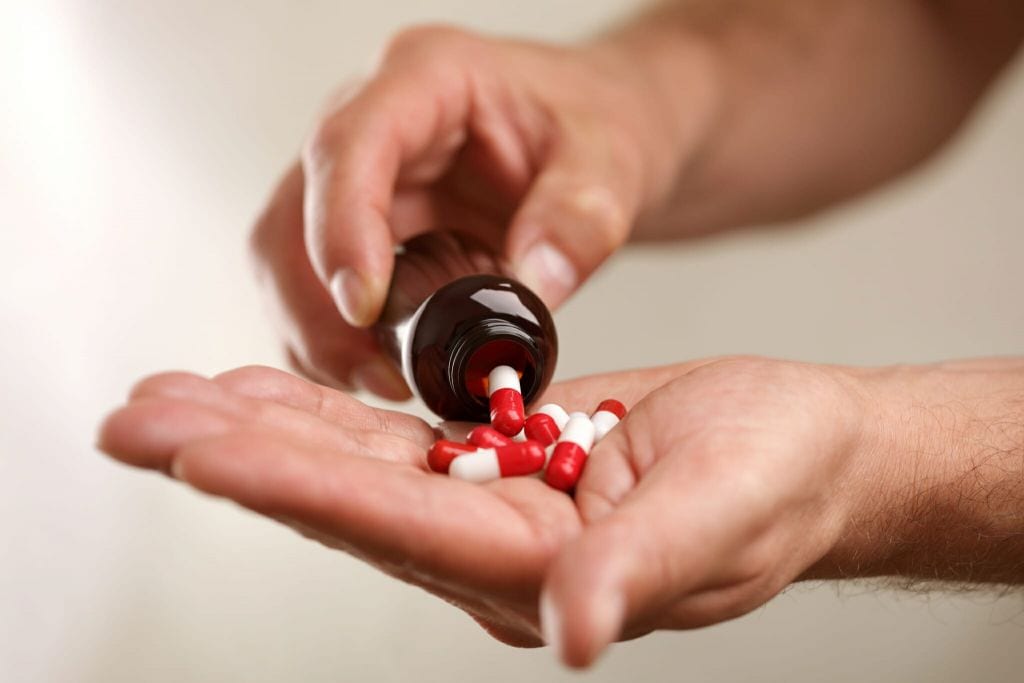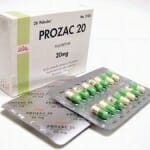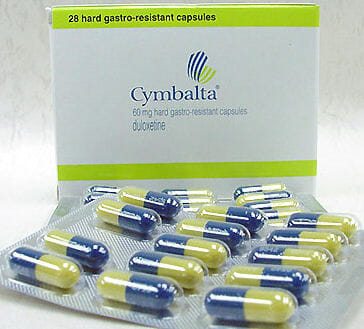The Best Guide to Depression Medications That Will Help You Choose Wisely
Depression Medication Consumer Guide

We all have moments or even days when we don’t feel quite ourselves. This is increasingly common in the wake of major life events such as death of a loved one, divorce from a spouse or in response to crippling financial loss.
However, if the sadness intensifies to the point where you continually struggle with feeling utterly worthless and/or hopeless it’s possible you could unknowingly be battling clinical depression. If you’ve noticed this extreme sadness continuing without relief for several weeks on end, you could be one of the millions who turn to professional help and antidepressant medication to alleviate their suffering.
Some of the key symptoms and hallmarks of depression include: intense unhappiness, overwhelming sadness, feelings of helplessness, loss of interest in activity, weight loss or gain, changes in your sleep patterns (too little or too much), etc.
A doctor or professional psychiatrist can properly diagnose clinical depression and help you treat it with antidepressant drugs. With prescriptions like those listed below, over the course of a few weeks you should begin to see troublesome symptoms decrease their disruption of your daily life. Still, it’s important to do your research and figure out which type is right for you.
ANTIDEPRESSANT DRUGS PRICE COMPARISON
For your convenience we have linked to all prescription drug prices (shown below) within our database so you can quickly compare and find the lowest prices on most antidepressant medication.
ANTIDEPRESSANT MEDICATION
Here are some helpful background facts and possible side effects of the market’s most popular antidepressant prescription drugs.
SSRIS
Selective serotonin reuptake inhibitors (SSRIs) are prescribed more than any other class when treating depression. Not only do they produce results, they also are typically regarded as having fewer side effects. They work to combat your depressive symptoms by decreasing seratonin blockers, preventing your brain’s reabsorption or reuptake of “selective” neurotransmitters called serotonin.
The most common forms include:

- sertraline ( Zoloft )
- fluoxetine ( Prozac )
- citalopram ( Celexa )
- trazodone ( Oleptro )
- vilazodone ( Viibryd )
- fluvoxamine ( Luvox )
- escitalopram ( Lexapro )
- paroxetine ( Paxil , PPexeva )
SIDE EFFECTS OF SSRIS
Sexual dysfunction such as decreased sex drive are common while taking SSRIs. However, more serious side effects include:
- nausea
- anxiety
- diarrhea
- vomiting
- dizziness
- dry mouth
- headaches
- weight gain
- trouble sleeping
SERIOUS COMPLICATIONS
Certain SSRIs (and in fact many antidepressants) have been known to increase suicidal thoughts and do carry the potential to increase the risk of suicidal behaviors in children, adolescents, and young adults ages 18 to 24.
Other noteworthy warnings include abnormal bleeding that can occur in conjunction with some common over the counter pain relievers like aspirin, ibuprofen, and naproxen as well as blood thinners such as warfarin.
SSRIs also carry the risk of producing serotonin syndrome; a serious medical condition in which the medications alter the concentration of serotonin in your brain. The risk is increased when taking prescription pain medications like demerol, triptans and tramadol, along with natural medicines like St. John’s Wort Symptoms and street drugs like cocaine.
Symptoms of serotonin syndrome include: anxiety, restlessness, sweating, muscle spasms, shaking, fever, rapid heartbeat, vomiting, and diarrhea.
SNRIS
Serotonin norepinephrine reuptake inhibitors (SNRIs) treat depression by blocking the reabsorption two of the brain’s neurotransmitters: serotonin and norepinephrine.
 The most common forms include:
The most common forms include:
- milnacipran ( Savella )
- duloxetine ( Cymbalta )
- desvenlafaxine ( Pristiq )
- venlafaxine ( Effexor XR )
- levomilnacipran ( Fetzima )
SIDE EFFECTS OF SNRIS
- nausea
- anxiety
- sweating
- dizziness
- tiredness
- insomnia
- headache
- constipation
- loss of appetite
- sexual dysfunction
SERIOUS COMPLICATIONS
Much like antidepressants in the class above, serious complications such as abnormal bleeding and/or suicidal thoughts or behavior can occur. Duloxetine (which also aids in pain relief) and milnacipran can also cause contradictions in patients with certain kinds of glaucoma.
TCAS
Tricyclic antidepressants (TCAs) were discovered back in the 1950’s, and for years were the most widely used and approved antidepressants. They have since been replaced by newer antidepressants like SSRIs and SNRIs that typically come with fewer risks and side effects. They work similar to SNRIs, by improving serotonin and norepinephrine levels, while also blocking the brain’s muscarinic M1, histamine H1, and alpha-adrenergic receptors.
The most common forms include:
- clomipramine ( Anafranil )
- desipramine ( Norpramin )
- doxepin ( Sinequan )
- imipramine ( Tofranil )
- nortriptyline (Pamelor)
- protriptyline(Vivactil)
- trimipramine ( maprotiline ( Ludiomil )
- amitriptyline ( Elavil ) • amoxapine
SIDE EFFECTS OF TCAS
- dry mouth
- constipation
- blurred vision
- urinary retention
- dizziness
- tachycardia
- memory impairment
- delirium
- orthostatic hypotension
- weight gain
- seizures
- bone fractures
- sexual dysfunction
- increased sweating
- fatigue
SERIOUS COMPLICATIONS
In addition to the increased risk of suicidal thoughts or behaviors, TCAs have been known to induce more serious side effects such as low blood pressure, irregular heart rate, and seizures. TCAs should never be used within a two-week (14 day) span of taking a Monoamine oxidase inhibitor (MAOI).
MAOIS
Monoamine oxidase inhibitors (MAOIs) work by preventing an enzyme that breaks down norepinephrine, serotonin, and dopamine called monoamine oxidase. Like TCAs, MAOIs have newer antidepressants with fewer side effects are typically prescribed over MAOIs.
The most common forms include:
- isocarboxazid ( Marplan )
- phenelzine ( Nardil )
- selegiline ( Emsam Patch ), a transdermal patch
- tranylcypromine ( Parnate )
SIDE EFFECTS OF MAOIS
MAOIs have several other drug and food interactions which may cause significant side effects.
• postural hypotension
• weight gain
• sexual side effects
SERIOUS COMPLICATIONS
Aside from general increased risk for suicidal thoughts or behaviors, patients have also reported hypertensive crisis which is caused from MAOIs interaction with tyramine-containing foods or beverages. These can spike blood pressure levels to an unhealthy and dangerous level. Individuals taking MAOIs should stay away from wine, aged cheese, sauerkraut, cured meats, draft beer, soy products, and more.
ATYPICAL ANTIDEPRESSANTS
Atypical antidepressants are classified as such because they don’t meet the criteria of the other antidepressant classes. Though they do work by affecting the levels of dopamine, serotonin, and norepinephrine in the brain.
The most common forms include:
- bupropion ( Wellbutrin SR )
- mirtazapine ( Remeron )
- nefazodone (Serzone)
- trazodone ( Desyrel , Oleptro )
- vortioxetine ( Brintellix )
- maprotiline
SIDE EFFECTS OF ATYPICAL ANTIDEPRESSANTS
Side effect will vary from drug to drug based on the chemical makeup of the medication itself. Some general side effects include:
- dry mouth
- constipation
- dizziness
- drowsiness ( Mirtazapine and trazodone )
- lightheadedness
SERIOUS COMPLICATIONS
Like all antidepressants, there is some risk of suicidal thoughts or behavior associated with these drugs. In addition, Bupropion can conflict with certain seizure disorders and should not be used in patients who have eating disorders or within 2 weeks of using an MAOI.
Nefazodone is not recommended for patients suffering from liver disease.
Mirtazapine and trazodone may cause life threatening abnormal heart rhythms.
Ultimately, you should always talk to your doctor before starting on any sort of medication regimen to combat depression. In some cases, natural methods like increased exercise, omega-3-fatty acids, St. John’s wort, 5-hydroxytryptophan (5-HTP), SAMe, and L-theanine can help alleviate milder symptoms of depression or Seasonal Affective Discorder (SAD). In other cases, a prescription antidepressant like those listed above may be the best course of action to combat significant symptoms of clinical depression.[/fusion_text][/one_full][/fullwidth]
Join Our Free Newsletter
Get a weekly dose of money-saving tips on your medications, drug side effects alerts, drug interaction warnings, free prescription coupons, late-breaking safety information and much, much more!